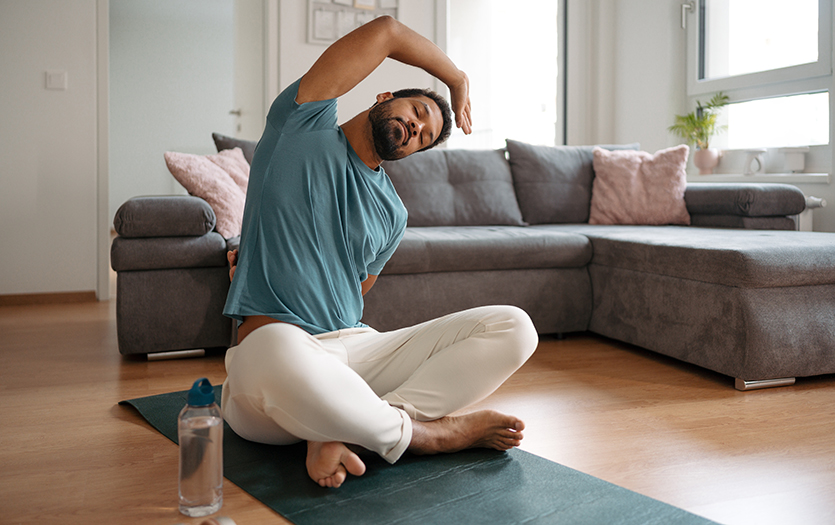
This post was written by Meghan Banik, certified athletic trainer, Parkview Sports Medicine.
At some point, you’ve probably experienced a muscle cramp. Whether it was a leg or side stitch during a run or a stubborn Charlie horse that jolted you from sleep, muscle cramps can strike at any time, sometimes for no known reason. While they can be fairly painful, they shouldn’t cause too much concern. Knowing what can trigger the discomfort and strategies for keeping them at bay can be helpful.
Why we get muscle cramps
A cramp occurs when your muscle fibers “misfire,” causing a spontaneous, involuntary contraction. The muscle will eventually fatigue and release itself, or you can try stretching out the muscle for relief.
Muscle cramps can be caused by several things, including:
- Dehydration
- Inactivity
- Electrolyte imbalance
- Aging
- Lack of stretching
- Fatigue
- Overuse
If muscle cramps occur often and become extremely painful, it’s important to seek medical help, as it can be a symptom of an underlying medical condition and should be investigated.
Preventing muscle cramps
There are two main strategies for mitigating the occurrence of muscle cramps: hydration and stretching.
Hydration
Staying hydrated is crucial, particularly during the warmer months of the year and if you are active. You can achieve this by drinking plenty of water and, if you feel you are low on electrolytes, adding in a sports drink.
Learn what you should look for in an electrolyte supplement.
Stretching
Stretching daily can help reduce the risk of cramps during or outside of exercise. You should introduce static and dynamic stretches before any activity. It can also be helpful to stretch before bed if you are prone to muscle cramps.
Here are some simple stretches you can add to your work routine.
Again, if a muscle cramp is accompanied by extreme pain, muscle weakness or even reduced muscle size, consult with your primary care provider.
We’re here to help
Learn more about our Sports Medicine offerings, including Sports Nutrition, Ortho Express Walk-in Clinic, Athletic Rehab and Peak Performance Program by visiting us here.



